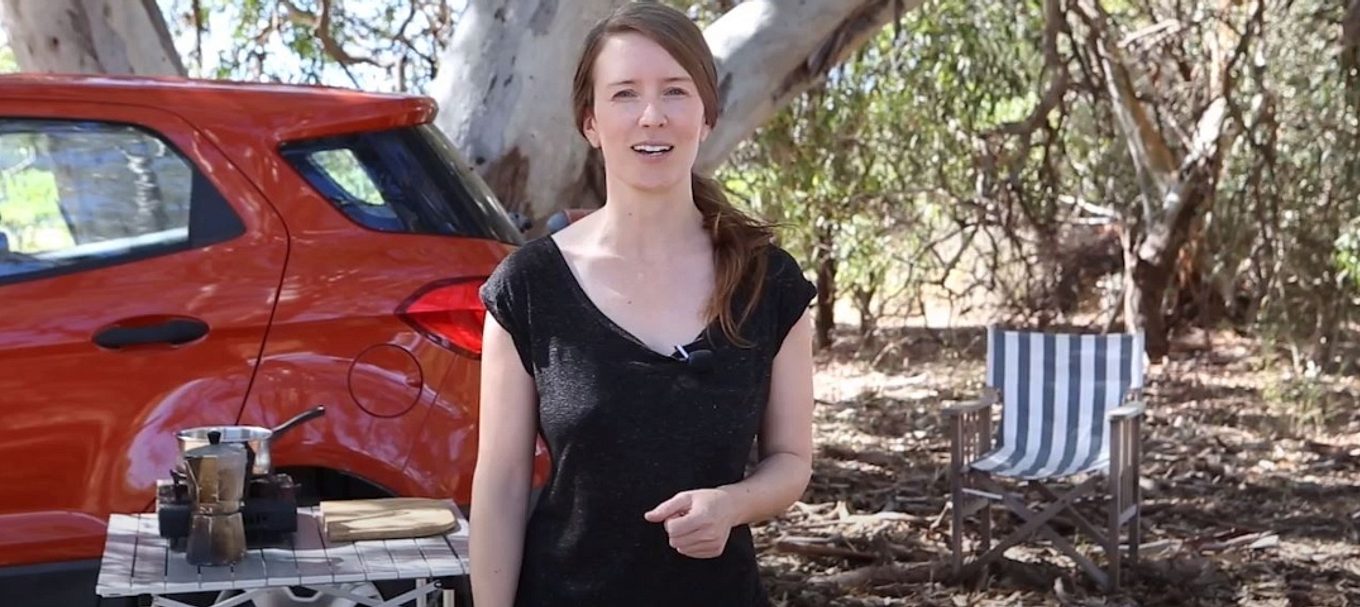
How to have a low-waste camping trip when it comes to your menu
Camping is a great way to get out and explore South Australia’s national parks.
Summer and early autumn in particular are the perfect time to get away and see what our beautiful state has to offer.
But let’s face it – half the fun of camping is the cooking and eating part.
Dani from Folk of all Trades, an Adelaide hub that shares skills and stories of sustainable crafts – both online and at in-person workshops – has given us a rundown on how to plan your camping getaway, in terms of meal prep and cooking, so you take the right things and ensure you have less waste.
Low-waste camping tips
Read on as Dani shares five simple tips to have an environmentally friendly camping trip that she’s learnt from her family holidays:
1. Make a meal plan
There’s nothing worse than forgetting to bring an entire meal, or ingredients that would have made a dish more delicious. We’ve been camping where no-one has brought any salt or oil, which can be pretty bland.
That’s why we now always make a plan, which has massively reduced the number of items we forget to bring, but it also means there is much less waste in terms of unnecessary food we don’t get around to eating.
It might seem like extra work to think about what meals to make or to list ingredients, but that list or spreadsheet can be saved and used time and time again, which cuts down on planning time and the head scratching that comes from deciding what to make.
Some of our favourite one-pot meals include a beany Mexican chilli, Moroccan stew with cous cous, jambalaya rice, and lots of quick and easy pasta dishes.
2. Bring reusable containers
Reducing the amount of packaging that comes into your house is a great way to take care of the environment generally, so why not extend this practice when you’re packing your food to take camping.
There are lots of excellent bulk food stores around Adelaide, and more popping up regionally, many with a selection of local and ethically produced food.
By purchasing in bulk, you can then bring camping ingredients in any suitable containers – repurposed coffee tins, takeaway containers, or drawstring bags. And by bringing just the right amount for the meals you are preparing, it will help you stick to your meal plan.
Bonus: having containers with you also means any leftovers can be sealed and kept for the following meal, which reduces food waste while you are away.
3. Pre-prepare if necessary
During summer it won’t be possible to cook on an open fire in a national park, and during total fire ban days you’re also not allowed to use gas or liquid fuel stoves.
In those cases, it’s a good idea to bring food that you’ve prepared at home or doesn’t require cooking.
This could be pasta or potato salad, bread, veggies, dips and more. Think about the trip like a series of picnics, or if you prefer – a smorgasbord of antipasti. Yum!
4. Replicate your at-home bin system
Depending on the items you’ve brought, the only waste that you may need to take home with you will be compostable materials like food scraps, so it’s a good idea to bring a dedicated compost bin with compostable liners.
These are often supplied or subsidised by local councils, though they can also be bought from some supermarkets.
It’s important to check that the bags you’re using are actually compostable. Many green coloured bags are labelled as biodegradable, which means that they will break down into smaller pieces and could still be made of plastic, rather than being fully compostable.
We often take a basket or bag for recyclables too, like glass, cardboard and tins. For any small amounts of landfill, you can use plastic bin liners or compostable bags – just make sure you don’t mix up the compostable and landfill bags when it’s time to put them in the right wheelie bin when you get home.
5. Make your own ice
Before going away, we like to freeze several drink bottles as our ice blocks. It saves on buying plastic bags full of ice, and also keeps the esky much less soupy by the end of the trip.
The added benefit of using drink bottles is that we can drink the water once defrosted, or use it for cooking or washing dishes. We’re all about multipurpose use here!
For more handy resources and inspiration from Folk of all Trades, check out theirFacebookpage. And to start planning your next camping adventure, check out our stories:Everything you need to know for your first camping trip in a national parkandEverything you need to know about cooking on a camping trip.
This story was originally posted in January 2021.





